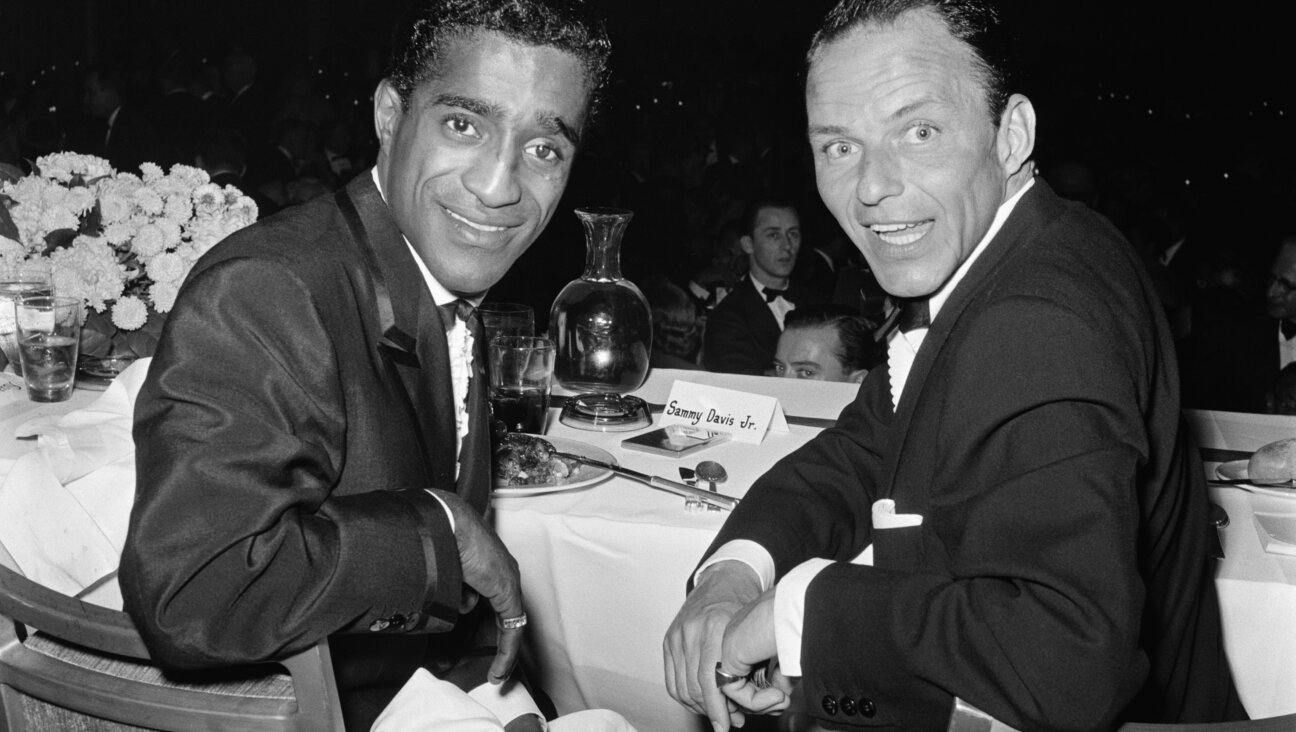The Conscience of a (Jewish) Conservative
Throughout my life, I’ve found that my co-religionists are astounded when they find out I’m a conservative. “What’s a nice Jewish boy like you doing as a Republican?” they ask, as if everything from Genesis through Kings II were somehow merely early drafts of the Democratic Party platform.
Recently, the neoconservative eminence Norman Podhoretz turned the tables. His much-discussed new book, “Why Are Jews Liberals?” is both an inquiry and a reproach, in that Podhoretz believes Jewish interests are better served by the current political program of the right.
I admire Podhoretz and agree with him ideologically, but let’s face it, defining “Jewish interests” is impossible — how else to explain our famous fractiousness?
What’s more, I haven’t met many Jews who discovered their political compass in the Torah or in their synagogue pews (except after the fact, when they conveniently found what they had already set out to look for). I found mine in the pages of National Review, which I started reading in grade school.
Nevertheless, I like to think, there is also something deeply Jewish about my conservatism.
We Jewish conservatives are the Jews of the Jews — we are not agreeable, we do not go along and we make life unpleasant for the ideologically monochromatic majority of our brethren. To stand apart and against the liberal conventions of friends, extended family and co-workers is about the most Jewish thing I can imagine: It marks me as different, forces me to read up and makes life far more interesting.
For me, being a conservative has meant being a minority in virtually every setting I’ve ever lived and worked — the liberal East Side of dark blue Providence, R.I., an elite East Coast college and several consecutive newsrooms. (It was a shock when I got to the Bush White House, where the only moment I felt out of place was when my colleagues would discuss hunting quail.)
In contrast, how easy life must be for Jewish liberals! Never challenged in the pews by their predictably liberal rabbinate, they settle into the warm embrace of that great cliché of contemporary non-Orthodox Jewry — tikkun olam — to describe their spiritual ambition.
They can live in the ethnic enclaves of the coasts, deep in those dark-blue inner suburbs around Boston, New York, Philadelphia, Washington and Los Angeles, and never shall they be troubled by the sight of a single “Palin 2012” bumper sticker.
Yet it’s worth recalling that Jewish liberals were not always so content with being comfortable. Indeed, they are the inheritors of a remarkable ideological heritage — the Bundists and labor Zionists, the union leaders and civil rights pioneers.
Historically, Jewish liberals have been wonderful iconoclasts, kicking up discomfiting dust clouds with great regularity. Some, such as Podhoretz, went on to become neoconservatives, though others stayed loyal to the left, providing those of us on the right with worthy foes.
The legacy of Jewish liberalism just goes to show that as a people we are always at our best when we stand apart, when we push ourselves beyond the comfortable guideposts of the majority.
It is a similar spirit that animated the recently departed William Safire, conservative columnist, language maven and Nixon speech writer. Over two decades, he was my mentor, teacher, friend and, more than anything else, an inspiration for a career spent throwing rhetorical roundhouses.
His biblical hero was Job, whom he called “the first dissident.” He devoted more than a thousand pages to a Civil War novel with a narrative focused on Lincoln’s moral journey on the issue of slavery. To Bill, the greatest hero was the lonely and principled voice unattached to party or faction.
To the Jewish Democrats who questioned how he could oppose a presidential ticket with Joe Lieberman on it, Bill wrote a column that essentially said: Political loyalties do not hang on the faith of one’s mother or father.
As a young conservative, I read Bill’s columns religiously, and in them found not just the courage of my convictions, but also the courage to question them (especially on matters of civil liberties and the state’s involvement in moral and private matters).
Bill would never worry too much about being in the minority. “Kick ’em when they’re up,” he would say. And he was right. Being a Jewish conservative has never been about being on top — that’s the reason it’s so much fun.
“I get a lot of mail, now a lot of e-mail, from people saying ‘How come you’re at The New York Times? You stick out like a sore thumb.’” Bill once recalled. “Well, I was hired to be the sore thumb. And I’m delighted to be going against the grain.”
For Jews — conservatives and liberals alike — Bill’s rule of sore thumbs is about as close as it gets to a theological first principle: As a people, we were chosen for a special purpose, and that purpose often points us in the opposite direction of everyone else. If that means going against the grain, so be it. Sometimes, as Bill Safire knew, that’s the best way of moving forward.
Noam Neusner is the principal of Neusner Communications, LLC. He served as a speech writer and Jewish liaison for President George W. Bush.
A message from our Publisher & CEO Rachel Fishman Feddersen

I hope you appreciated this article. Before you go, I’d like to ask you to please support the Forward’s award-winning, nonprofit journalism during this critical time.
We’ve set a goal to raise $260,000 by December 31. That’s an ambitious goal, but one that will give us the resources we need to invest in the high quality news, opinion, analysis and cultural coverage that isn’t available anywhere else.
If you feel inspired to make an impact, now is the time to give something back. Join us as a member at your most generous level.
— Rachel Fishman Feddersen, Publisher and CEO






















